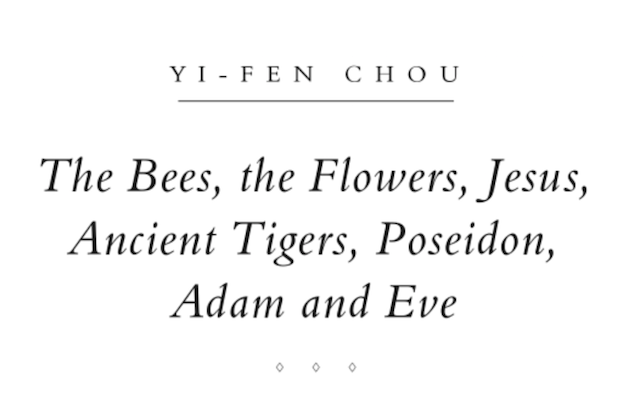Michael Derrick Hudson Criticized For Using Asian Pen Name To Get Poem Published

While it's not uncommon for poets to use pseudonymns when publishing their work, one poet's successful decision to do so has inspired controversy in the literary world.
Michael Derrick Hudson, an Ohio-based Caucasian genealogist and poet, had his poem “The Bees, the Flowers, Jesus, Ancient Tigers, Poseidon, Adam and Eve” published in the "The Best American Poetry 2015" anthology under the pseudonymn Yi-Fen Chou. The book was released on Monday. Hudson defended his decision in the anthology's biography section, saying that he had previously struggled to get work published:
There is a very short answer for my use of a nom de plume: after a poem of mine has been rejected a multitude of times under my real name, I put Yi-Fen's name on it and send it out again. As a strategy for "placing" poems this has been quite successful for me.
This action has received widespread criticism, especially from literary figures of color who see this as a form of white privilege and a hoax. For example, award-winning Korean-American poet Franny Chou told The Independent that this is a form of cultural appropriation given the number of Asian Americans who have to change their names to avoid discrimination:
“When I was in the second grade, I stopped going by my Korean name, Jeong Min, because at seven years old, I already felt the shame of being foreign and the exhaustion of hearing my name butchered over and over again. As a kid, I tried to imagine myself as an author, but worried about how to hide my obviously Korean surname,” she said.
“For Asian-Americans, changing our names is a strategy to survive a racist and nativist America. Michael Derrick Hudson's pseudonym is cultural appropriation at its purest—it’s stealing from the struggle of people of color for a white man's personal gain."
The anthology was guest edited by Sherman Alexie, a notable poet of Native descent, who was informed of Hudson's true identity only after the poem had been selected for publication. In a lengthy blog entry on the anthology's website, Alexie responded to the criticism leveled against him and Hudson, offering some transparency about his selection criterion and admitting that he was decieved, but that the episode taught him lessons about judging others' work:
So I went back and reread the poem to figure out exactly how I had been fooled and to consider my potential actions and reactions. And I realized that I hadn't been fooled by anything obvious. I'd been drawn to the poem because of its long list title (check my bibliography and you'll see how much I love long titles) and, yes, because of the poet's Chinese name. Of course, I am no expert on Chinese names so I'd only assumed the name was Chinese. As part of my mission to pay more attention to underrepresented poets and to writers I'd never read, I gave this particular poem a close reading. And I found it to be a compelling work. In rereading the poem, I still found it to be compelling. And most important, it didn't contain any overt or covert Chinese influences or identity. I hadn't been fooled by its "Chinese-ness" because it contained nothing that I recognized as being inherently Chinese or Asian.
[...]
And, hey, guess what? In paying more initial attention to Yi-Fen Chou's poem, I was also practicing a form of nepotism. I am a brown-skinned poet who gave a better chance to another supposed brown-skinned poet because of our brownness.
